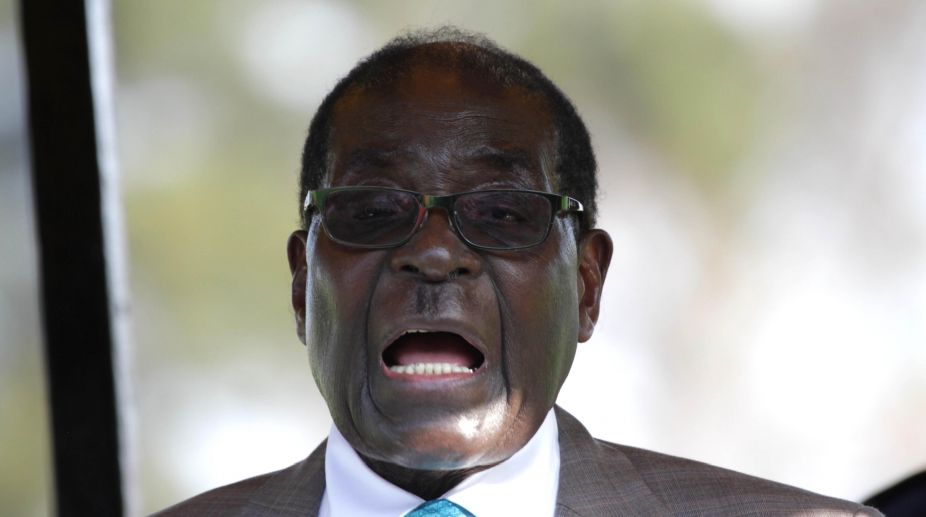African leaders gather in Zimbabwe for ex-President Robert Mugabe’s state funeral
Incumbent President Emmerson Mnangagwa will address mourners at the National Sports Stadium, where thousands will wear the colours of the ruling Zanu-PF party.

Robert Mugabe. (Photo: IANS/File)
It was an almost inexplicable contradiction, indeed a euphemism, that Zimbabwe presented to the world on Wednesday. As tanks rumbled on the streets of Harare, the capital ~ with the 93-year-old President Robert Mugabe in military custody ~ the army was overly anxious to “make it abundantly clear that this is not a military takeover of government”. To claim, as did the head of the African Union, that it “seems like a coup” is a gross understatement, if ever there was one. Indeed, the coup was the singular certainty in the midst of the overwhelming chaos and confusion, one that is embedded in a clash between personalities over the succession issue. There can be no two opinions on the facts of the case ~ Mugabe has been ousted by his dismissed Vice-President, Emmerson Mnangagwa, generally referred to as ‘the Crocodile’, for his decision to nominate his wife, Grace. In a word, the “bite” of the “Crocodile” has led to Mugabe’s exit close to 40 years after Zimbabwe’s independence from white minority rule and his assumption of power (1980). The military has indicated that its seizure of power is temporary and a “bloodless correction”. True, no blood was shed, but the Generals have made it obvious that, having ejected the world’s oldest Head of State, the country is on course for a change of guard. Mugabe has little or no faith in the certitudes of democracy; his 52-year-old wife is as yet an unkown quantity in the political narrative. The President’s 37 years in power appear to be over even if he continues to be the resident of the presidential palace for now, rather than going into exile.
Trends since Wednesday do suggest that his former Vice-President, Mnangagwa, will very probably succeed him, rather than a General, as would seem likely after a military coup. Across the continent of Africa, there have been strident calls for calm and restraint. The military is acutely aware that to call the changeover a “coup” could lead to complications. Not least the eventuality that Zimbabwe would have to be suspended from the African Union and the Southern African Development Community.
Advertisement
Wednesday’s military intervention can be contextualised with the economic and political crisis that has been building up for some time. Indeed, this is said to have damaged Mugabe’s hard-earned status as an icon of liberation. Last week’s dismissal of Mnangagwa from the office of Vice-President brought matters to a head. Thus did Mugabe clear the way for his wife. Ergo, the timing of the counter-mobilisation by the “Crocodile” is crucial ~ in the immediate aftermath of his removal. Crucially, the army has done his bidding even before he has assumed power as President. Mnangagwa has used the military and Mugabe has lost the war of succession.
Advertisement
Advertisement